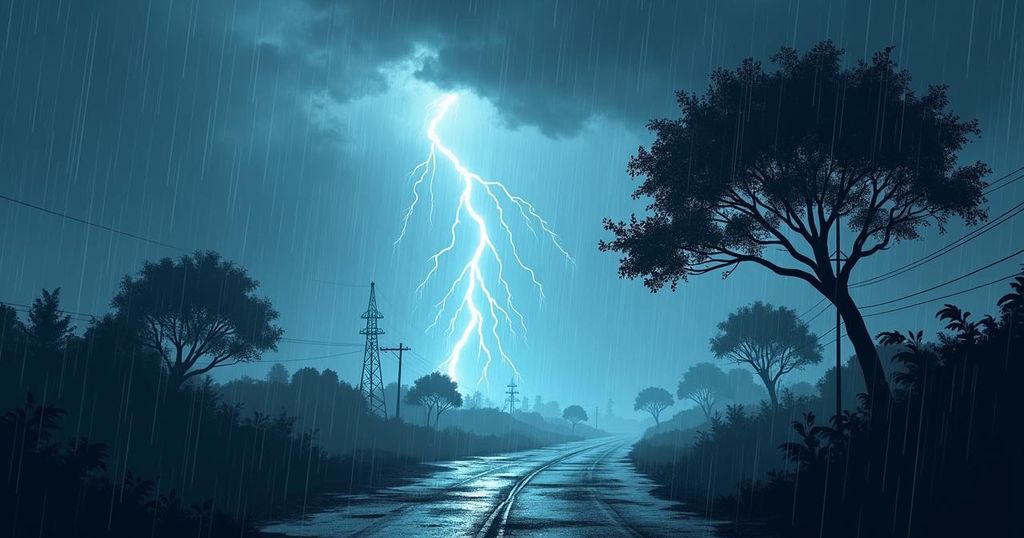A study indicates that climate change increased Hurricane Helene’s rainfall by around 10% and wind speeds by 11%. The storm resulted in over 230 fatalities and extensive damage, marking it as one of the deadliest hurricanes in U.S. history. The findings suggest a trend towards more frequent and intense hurricanes due to rising sea temperatures, highlighting the urgent need for climate action.
A recent study by scientists has revealed that Hurricane Helene, which caused widespread destruction, had its rainfall intensity increased by approximately 10% and wind speeds amplified by around 11% due to human-induced climate change. This assessment was conducted by the World Weather Attribution (WWA), an international collaboration of climate researchers, who pointed out that the Gulf of Mexico’s ocean temperatures were about 2 degrees Celsius above the average at the time of the storm. Hurricane Helene, which struck Florida with devastating consequences, brought surge levels reaching 15 feet and sustained winds of 140 mph. The storm led to extensive inland flooding, resulting in the death of over 230 individuals, marking it as the deadliest hurricane to impact the continental United States since Hurricane Katrina in 2005. With the rain amounting to over 40 trillion gallons, meteorologists indicated that this unprecedented figure would have been significantly lower without the influence of climate change. Experts asserted that the frequency of hurricanes of such severity has increased, estimating such intense storms were historically expected to occur every 130 years but are now approximately 2.5 times more likely. Other studies corroborate these findings, emphasizing the intensified rainfall in affected regions due to climate change. Climate researchers warn that continued reliance on fossil fuels will foster more hurricanes similar to Helene, with catastrophic impacts not limited to coastal areas. The alarming frequency of storms like Helene and the impending threat posed by Hurricane Milton exemplify the urgent need for enhanced emergency preparedness and a decisive transition from fossil fuels to sustainable energy sources. In conclusion, the evidence presents a clear link between climate change and the increasing severity of hurricanes, underscoring the importance of addressing climate issues to mitigate future risks. Effective energy system reforms are imperative to control the trajectory of these dangerous weather patterns, as highlighted by leading experts in the field.
The increasing frequency and intensity of hurricanes have been attributed to climate change, particularly due to the warming of ocean temperatures. As the atmosphere warms, it possesses a higher capacity to hold moisture, which contributes to extreme rainfall events during hurricanes. This phenomenon is observed in the context of recent hurricanes such as Helene and Milton, reinforcing the necessity for adaptive measures to safeguard communities from these potential disasters. Studies such as those conducted by World Weather Attribution provide key insights into the extent to which climate change influences storm behavior and severity, emphasizing that understanding this relationship is crucial for future preparedness and resilience planning.
In conclusion, Hurricane Helene stands as a stark example of the devastating consequences associated with climate change, with scientific evidence indicating that human activities have significantly intensified its impact. The future risks associated with hurricanes can be mitigated through decisive action regarding fossil fuel consumption and the adoption of sustainable practices. Addressing climate change is essential not only for protecting coastal areas but also for ensuring the safety of inland communities that may be affected by severe flooding. The need for comprehensive emergency preparedness and climate action has never been more urgent.
Original Source: www.newschainonline.com






